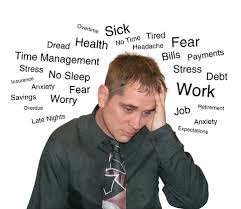Understanding depressions signs and symptoms in women

Understanding depressions signs and symptoms in women come with great freedom and happiness since many complications can be avoided
Understanding depressions signs and symptoms in women
Depression like any other health condition is not something to be proud of by any standard. The effects of being depressed is wide and broad in that it affects ones social life, relationships, career, self-esteem among other purposes. Statistics has it that in every eight women at least will develop depression in the course of life. Doctor Akoury registering that if you’re suffering from some past or present guilty situations, or just feeling sad , tired and generally down in spirit, you may want to consult with your doctor because you could be suffering from a major or developing state of being depressed. This piece of information is not to trigger fear in you but to make you take prompt decisions for a better health. Remember that depression is treatable and the more informed you’re about it the better as this will enables you to deal with it effectively. The beginning of winning this war is by first understanding depressions signs and symptoms. Ordinarily depressed women will most often complain of the following:
- Appetite and weight changes
- Depressed mood
- Difficulty concentrating
- Feelings of guiltiness, hopelessness and worthlessness all the time
- Irregular sleep patterns (sleeping more or sleeping less)
- Lack of energy and fatigue
- Loss of interest or pleasure in activities you used to enjoy
- Recurrent suicidal thoughts or even death
Understanding depressions signs and symptoms in women: Causes of depression in women
The intensity of women suffering from depression is always higher than that of men. Interestingly the variance is almost uniform in all racial, ethnic, and economic divides cutting across most countries globally. In view of this, different theories are attempting to explain the higher incidence of depression in women including elements like biological, psychological, and social factors.
Understanding depressions signs and symptoms in women: Biological and hormonal causes of depression in women
- Premenstrual problems – Hormonal fluctuations during the menstrual cycle can cause the familiar symptoms of premenstrual syndrome (PMS), such as bloating, irritability, fatigue, and emotional reactivity. For many women, PMS is mild. But for some women, symptoms are severe enough to disrupt their lives and a diagnosis of premenstrual dysphoric disorder (PMDD) is made.
- Pregnancy and infertility – The many hormonal changes that occur during pregnancy can contribute to depression, particularly in women already at high risk. Other issues relating to pregnancy such as miscarriage, unwanted pregnancy, and infertility can also play a role in depression.
- Postpartum depression – Many new mothers experience the baby blues. This is a normal reaction that tends to subside within a few weeks. However, some women experience severe, lasting depression. This condition is known as postpartum depression. Postpartum depression is believed to be influenced, at least in part, by hormonal fluctuations.
- Perimenopause and menopause – Women may be at increased risk for depression during perimenopause, the stage leading to menopause when reproductive hormones rapidly fluctuate. Women with past histories of depression are at an increased risk of depression during menopause as well.
- Health problems – Chronic illness, injury, or disability can lead to depression in women, as can crash dieting or quitting smoking.
Understanding depressions signs and symptoms in women
http://regenerativepotential.com/wp-admin





